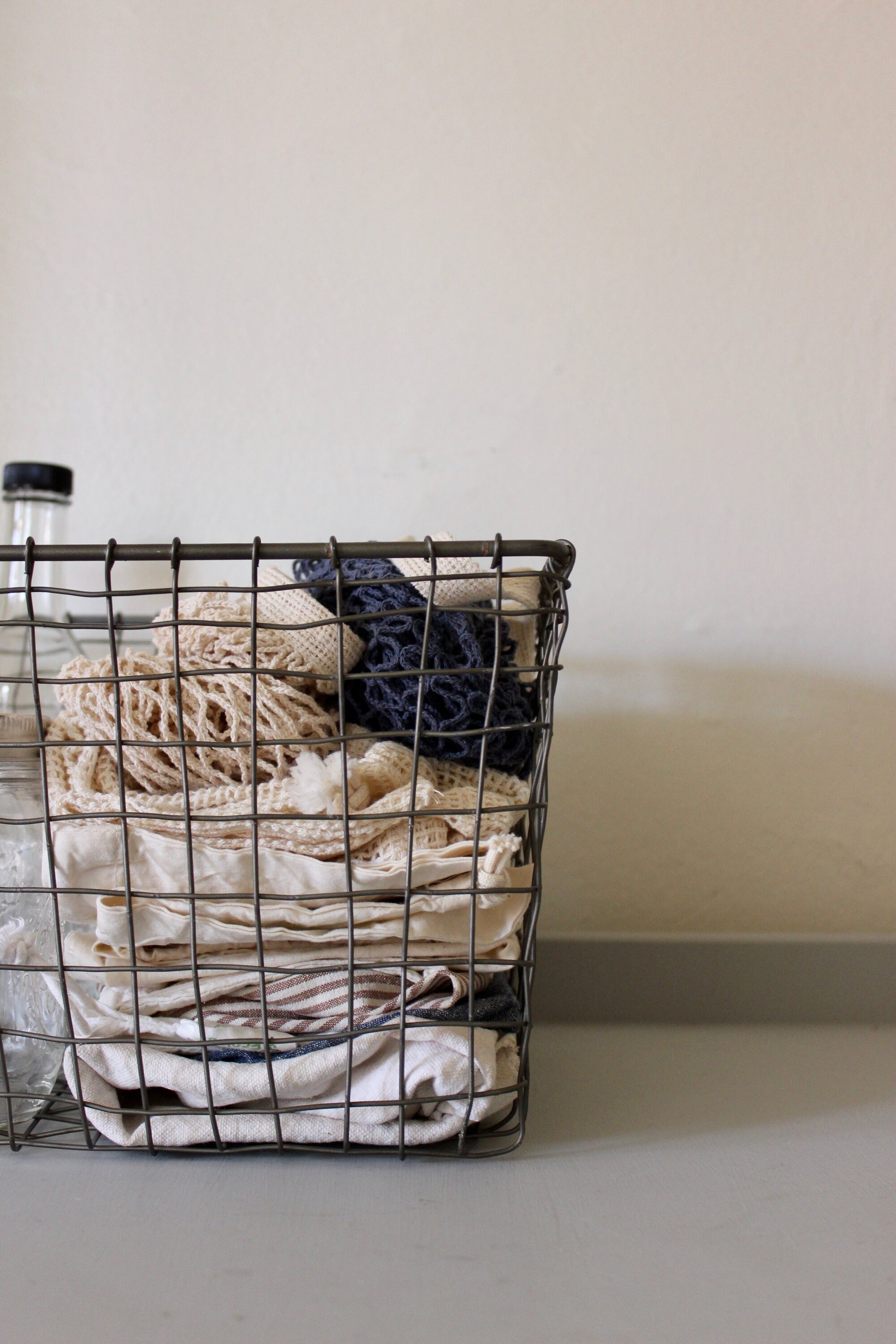
CELIA RISTOW | LITTERLESS
Celia Ristow is an environmental organizer and writer living in Madison, Wisconsin. On her blog, Litterless, she catalogues her efforts to curb her own waste and shares practical and supportive advice for others hoping to take an individual approach to a universal problem. Here’s her perspective on keeping trash in a tiny jar, adopting zero waste principals, sharing a zero-waste lifestyle with a partner, and taking something that largely started online and making it accessible to local communities.
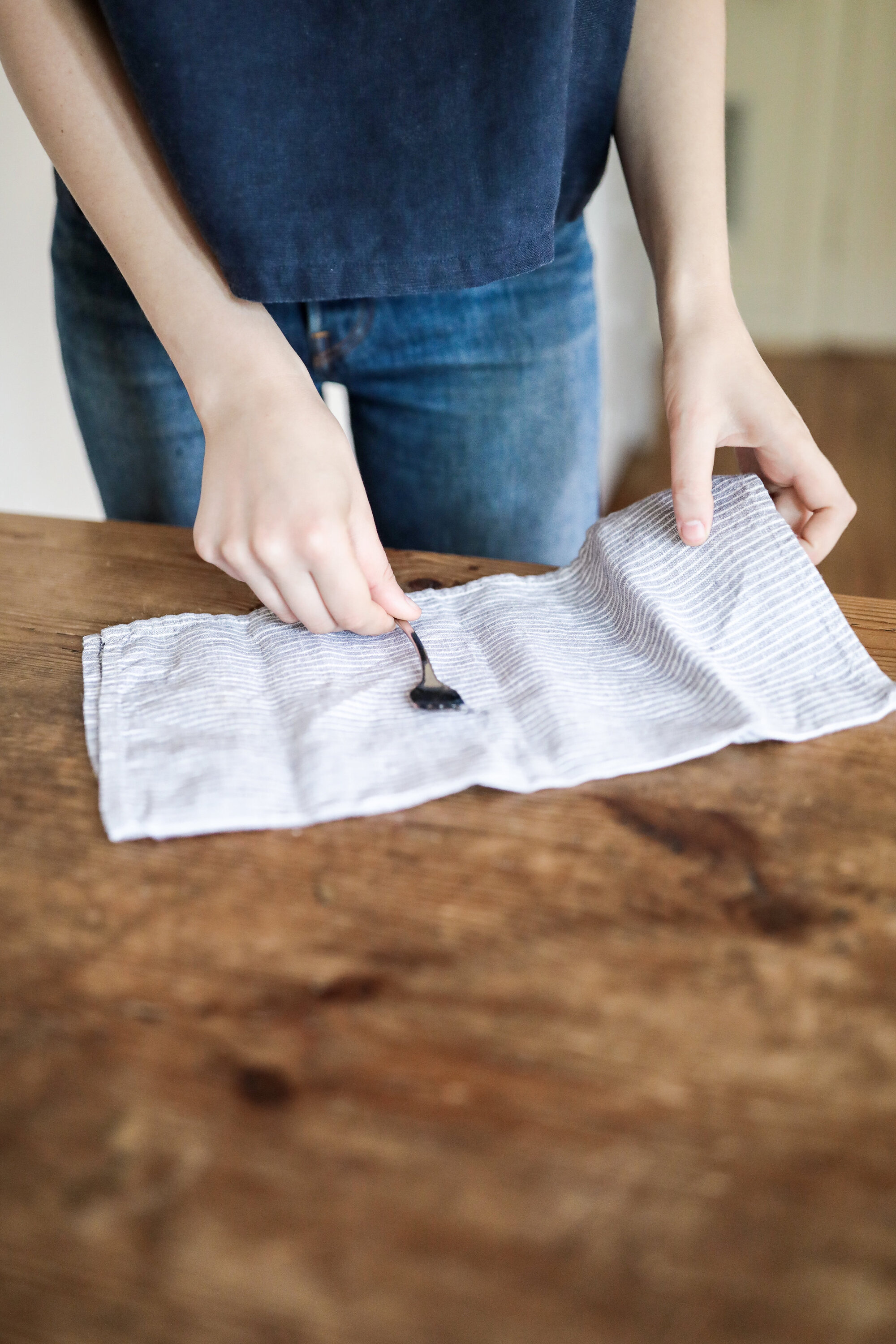
ERIN: Let’s start with you sharing a bit about yourself with RMTL readers who might not be familiar.
CELIA: I’m an environmental activist living in Madison, Wisconsin, where I write the blog Litterless and do zero waste community organizing. My work centers on fitting zero waste practices into an otherwise very normal life. For me, the zero waste movement has been warm and encouraging, but I think it can also feel daunting and possibly judgmental at times, especially for people who are newly participating. In my work, I try to emphasize that we’re all doing this imperfectly, that we’ll all be participating in different ways, and that’s okay.
Earlier this year, I moved up to Madison from Chicago, where I’d lived for four years before this and where I began thinking about the ways in which zero waste and community intersect. Now I live with my partner and spend my days alternately working, biking around, watering plants, wishing winter away, and so on.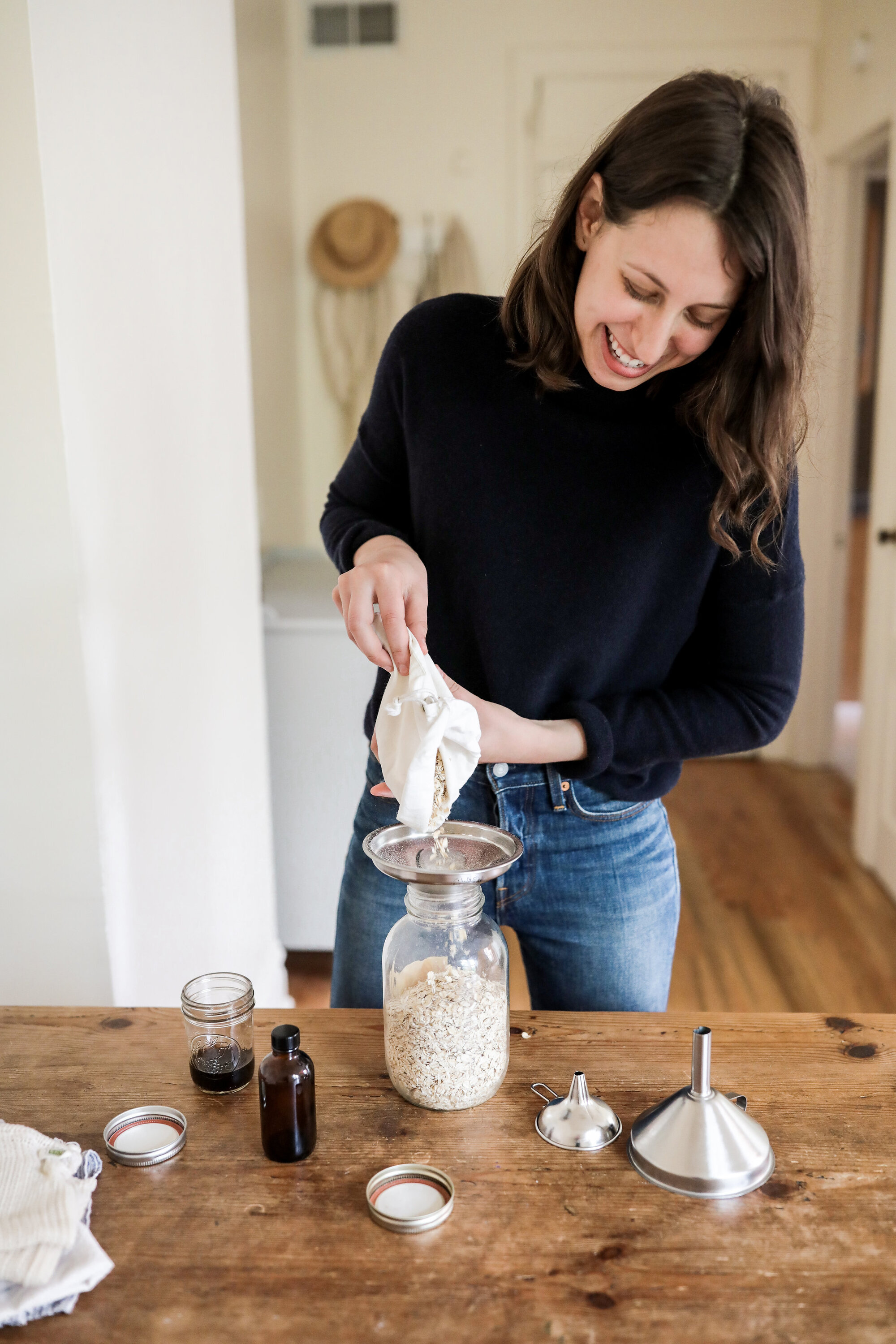
ERIN: When did you first start to act in earnest to reduce the waste that you produce? What was your motivation?
CELIA: Though I’d always considered myself an environmentalist, in college I began to question what that actually meant for me. Regardless of what I said and what classes I took and the environmental club that I led, it became pretty clear that by “environmentalist” I mostly meant Sierra Club-magazine-reader and petition-signer. I realized I could and should live in a way that was more in line with my values.
Zero waste is somewhat unique among environmental actions in that it’s mostly the sum of very small, simple parts. Living in a rented apartment in Chicago after graduating, I couldn’t put up solar panels, install a greywater filtration system, change my faucets to low-flow versions, or grow very much of my own food. But I could find a compost pick-up service, shop at the farmers’ market and in bulk, and work on swapping out single-use disposables. I was drawn to how much more accessible some of the actions felt than what I had previously believed was open to me.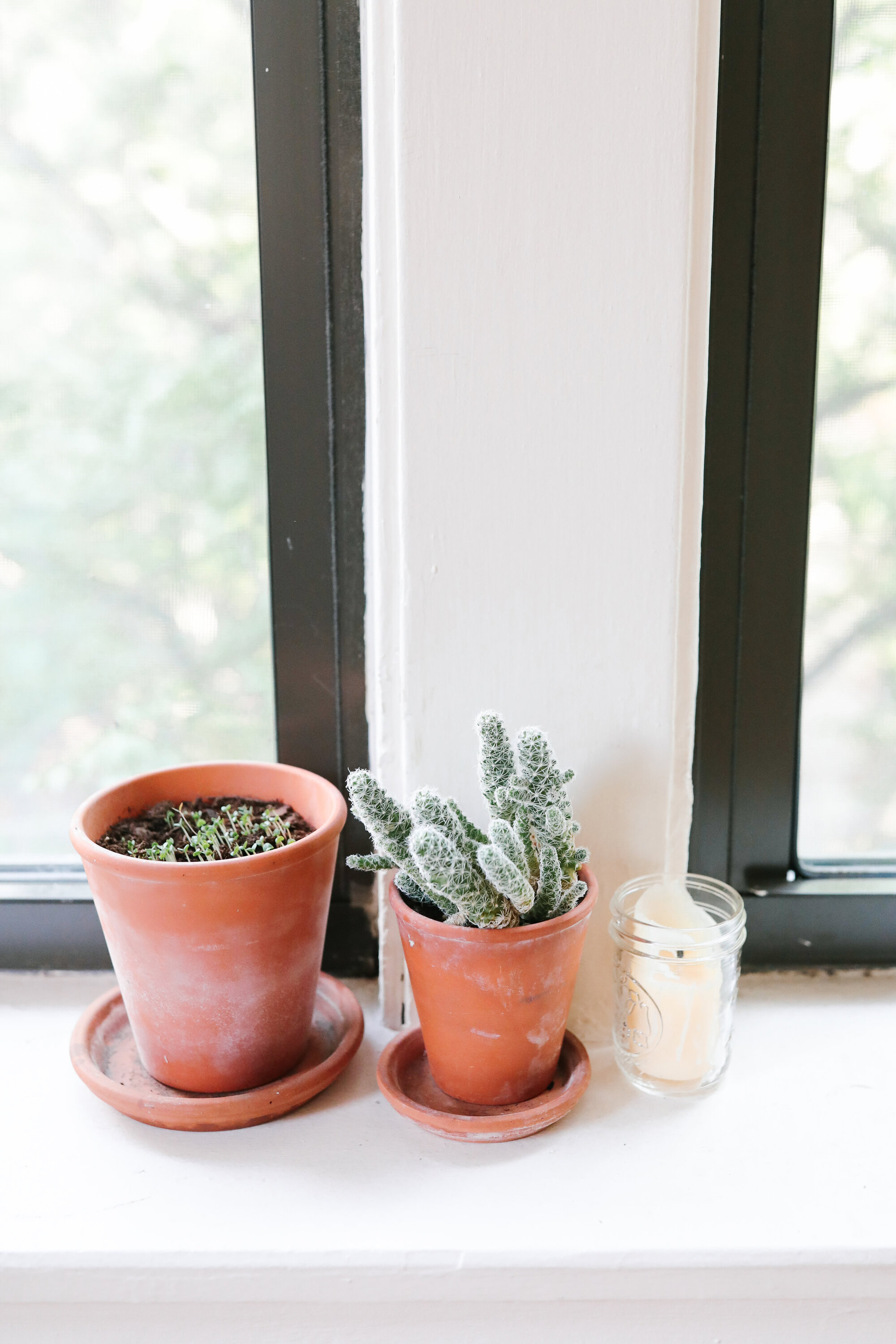
ERIN: In my book, I write about how not using paper towels isn’t going to save the world and that we need shifts in policy in addition to shifts in individual behavior in order to protect our planet. I admit that in the face of global climate change, spending energy on things like plucking nylon strands out of a bamboo toothbrush can feel futile, or even silly. And it’s definitely something that folks would be right to point out is a luxury. What’s your philosophy here? How do you stay motivated and hopeful while not getting bogged down in the minutiae? How have your thoughts on this evolved?
CELIA: Over the past few years, I’ve come to make the distinction between “zero waste” and “zero waste principles.” When I started working towards zero waste (zero-ish-waste? Low-waste?), most of the public voices in the movement still catalogued their minuscule amounts of trash for all to see, whether in a glass jar or otherwise. There weren’t many people out there saying that it was okay to fall into a middle ground, of being mindful to do better but not obsessive.
Trying to make absolutely no trash is time-consuming and maddening and probably somewhat self-indulgent. Instead of training an eagle eye on every single thing in our trash can, I’ve found that there are some broad principles that are fairly easy to apply to many situations: I try to choose reusables instead of recyclables, compost organic matter, try to buy secondhand items instead of new ones, and so on. If I’m generally hitting those marks in my day-to-day life, I don’t worry about too much a plastic straw given to me at a restaurant or a day when I forget to bring a reusable fork with me. I don’t think that the world will be saved by a thousand people who are “perfectly” zero waste, but I do think that millions of sort-of-zero-wasters will make a difference.
We need businesses and policymakers to step up to solve the climate crisis, but it can’t be solved if we don’t change our individual habits, as well. Here in Madison, the city recently shut down a composting pilot program due to too much contaminated material being thrown in the bins. If residents aren’t invested in sorting out their food scraps (or haven’t been educated about why they should be invested!), the best policy changes in the world (which, to be clear, we don’t have right now in the United States) aren’t going to be enough. I see zero waste as about building that level of individual investment, ideally as a complement to larger measures.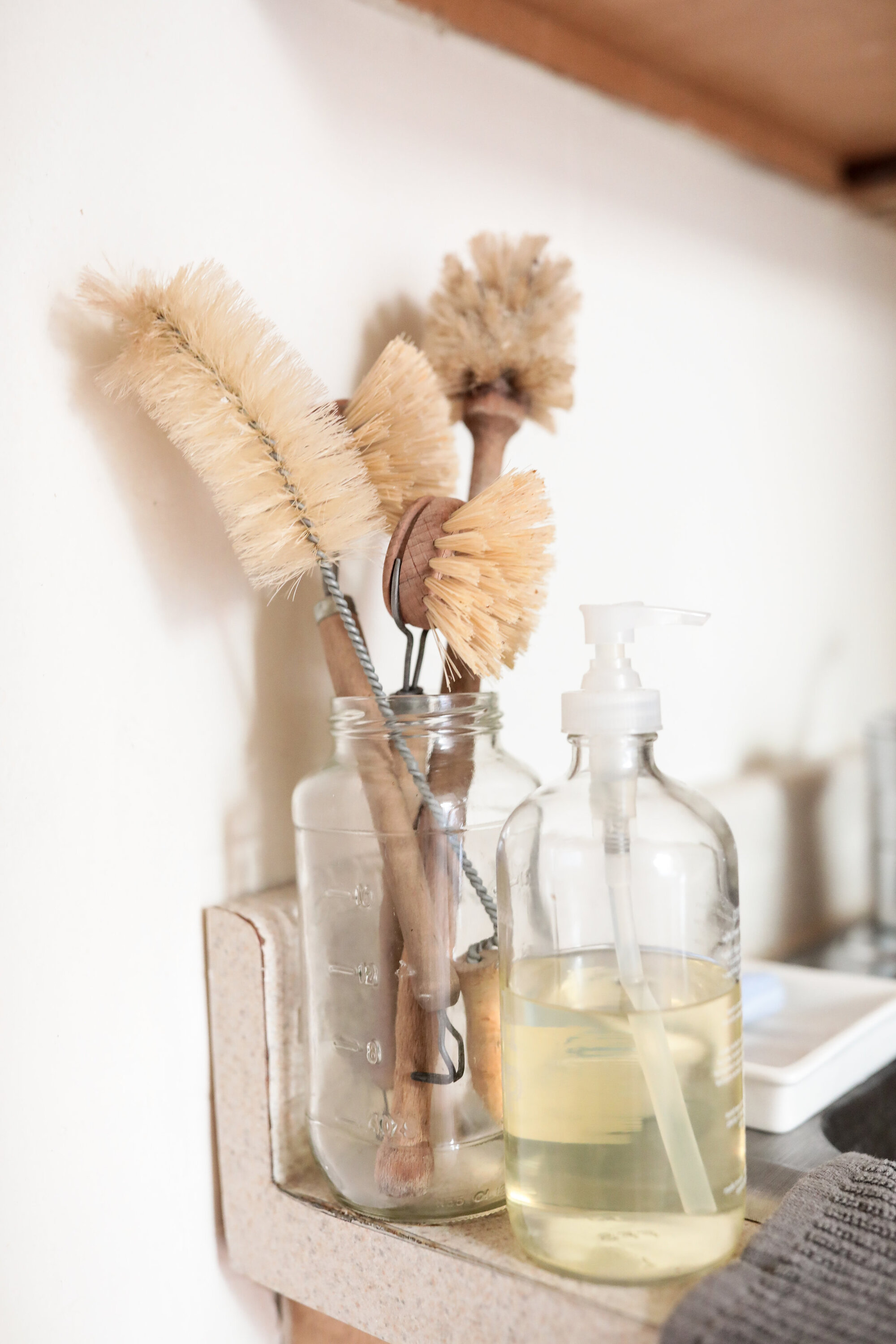
ERIN: I find that there are some ways to reduce individual waste that feel super straightforward to me—like using rags instead of paper towels—but that are stumbling blocks for other folks. And by contrast, there are things that seem easy for other folks that seem like a lot of work for me. Do you have a low waste achilles heel? Something that’s been especially hard for you to shift your habits around? What’s helped you through it?
CELIA: Traveling is where my habits fall most to the wayside. At home, I know where to compost, what I can recycle, where to shop for produce that isn’t packaged in plastic: my routines are in place, and they work. While traveling, none of that is true. To a certain extent, I think that’s okay. Since “perfect” zero waste is never my goal, I bring a few helpful items while traveling—snacks, reusable utensils, a cloth napkin, a water bottle—and then I don’t spend too much time worrying about whatever comes my way.
Likewise, in the kitchen there are a few items we still buy in packaging, because we can’t get them in bulk near us and have no desire to live without them: to name a few, dark chocolate bars, soba noodles, cans of coconut milk, cartons of tofu, sheets of seaweed, and bottles of hot sauce. I do my best to choose versions in glass, cardboard, or plastic that I know will be recycled here. I think that’s a good foundation for zero waste changes of all types: if there’s something you just can’t seem to change, look for a version that is responsibly made and packaged, and then move on. There’s always time to re-evaluate and shift that habit later.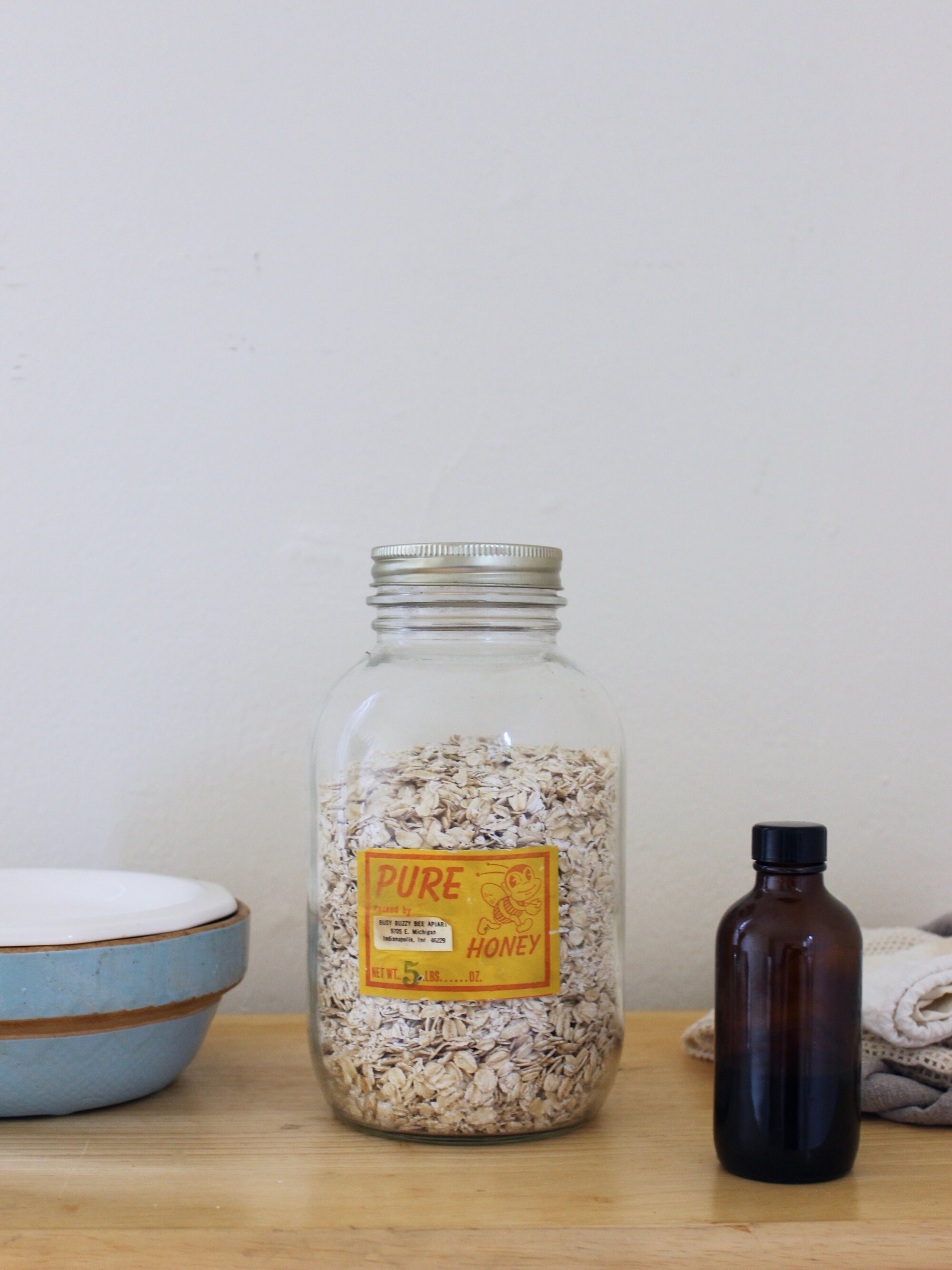
ERIN: I know you’re involved with your local zero waste organizing efforts in addition to the work that you do online. Can you talk a little bit about how being involved in a local community effort has influenced your work?
CELIA: Zero waste, at its heart, is incredibly locally specific. I tend to get frustrated with some of the oversimplified advice out there: Just buy everything in bulk! Just have the local vineyard refill your wine bottles each season! Just put your compost out on the curb for municipal pick-up! It’s so easy! The reality is, we all have access to different combinations of resources, depending on where we live. It can take a long time to piece together what is offered near you, and not everyone has that time or wants to spend it going down a rabbit hole of research about composting.
Community organizations and activists can help pick up the slack and compile much of that local information to support those who are interested in waste reduction but not the hours of research. Community-focused efforts help connect people with the best possible information – What can you recycle in this city? Where do you take your plastic bags? Best secondhand clothing shop nearby? They reduce that time burden and build community within a movement that largely started online. If we’re going to do a better job of making zero waste accessible, I think the community level is where we begin.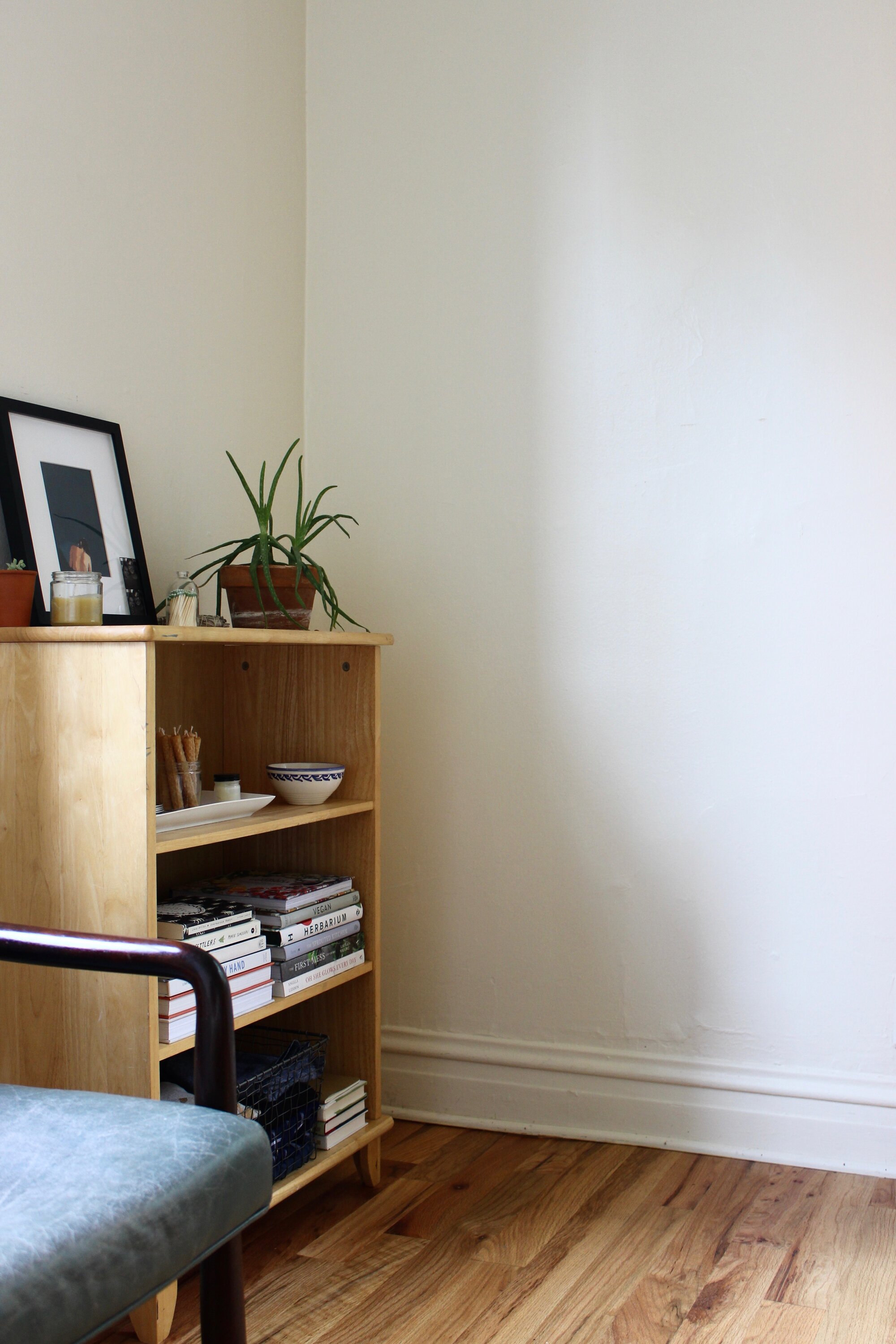
ERIN: How do you approach a low-waste lifestyle as a household? I know you don’t have kids, but I’d love to hear how you and and your partner have embraced this commitment together. Advice for folks just getting started or worried about how they might get their family on board?
CELIA: Though the public faces of the zero waste movement are predominantly female, I’m hopeful that in most homes the work is more evenly split between partners. In my relationship, I was the only one practicing zero waste for about the first year (at the time we were living in separate cities, so tiffs about taking plastic grocery bags, while they did occur, were rare). Slowly, we began to see eye-to-eye on the matter and to find a routine that falls somewhere in the middle.
Now that zero-waste practices are the norm for us, we try to make sure they fall equitably. In practice, I’m less likely to be the one to take out the compost when it is less than fifty degrees outside, and my partner is less likely to be the one to host a stuff swap for our friends, but generally we’re on the same page about how to grocery shop and the rest of it. When we aren’t, we try to rejigger our roles until they feel better, like we would for any other set of chores.
I think another key here is to relax the standards for zero waste. If you’re trying to make no trash, period, it’s going to be a lot harder to find a balance that works for your whole family. I never want to police or even comment on someone else’s trash; I wouldn’t want a morality lecture every time I buy a tub of vegan yogurt or a bottle of Sriracha, so I likewise don’t get worked up when my partner brings home something that isn’t zero waste or even close to it. It can be hard to escape the trappings of convenience and packaging, and for us it’s enough that we both try. We can all buy granola bars sometimes – it’s okay!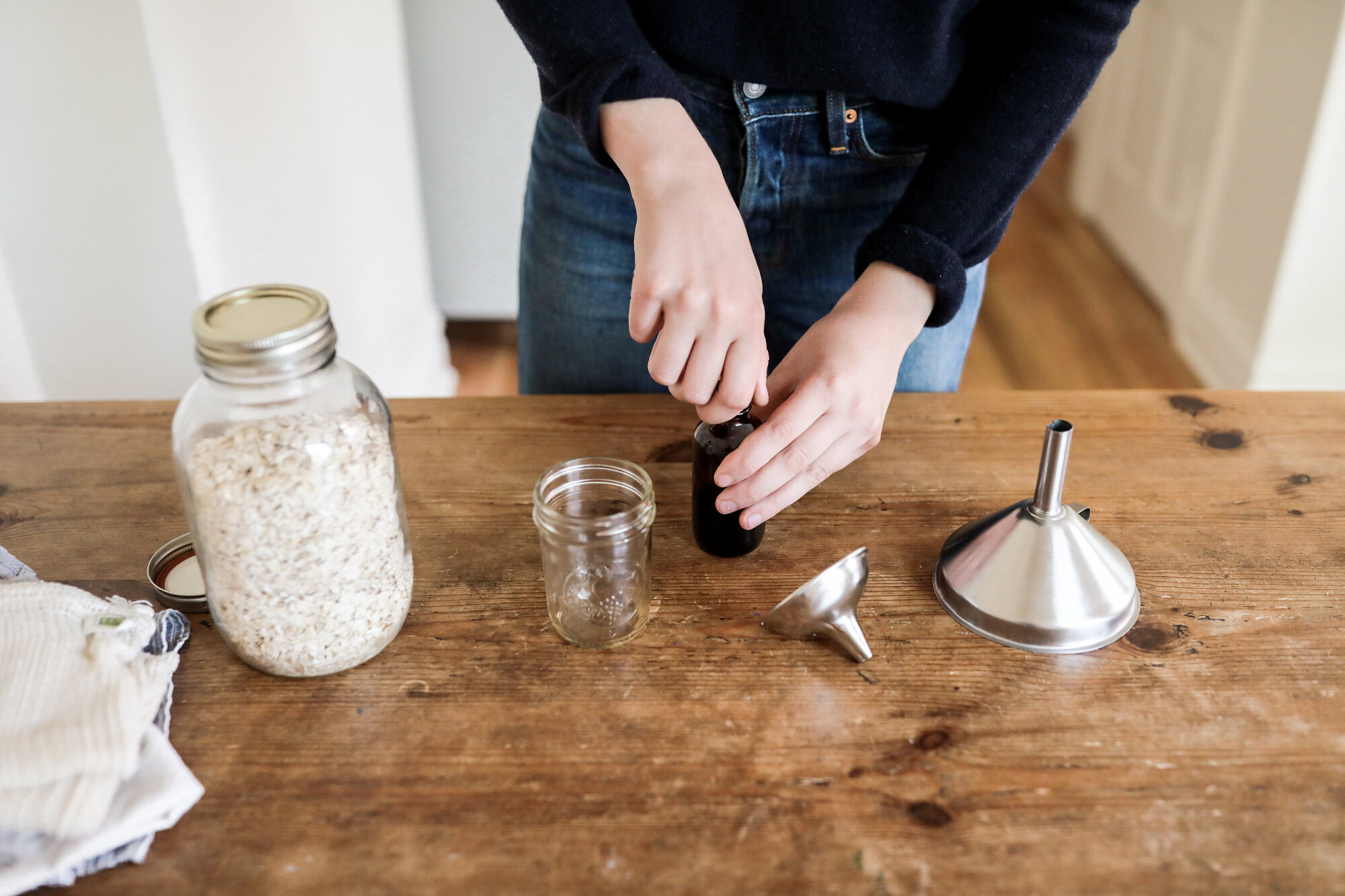
ERIN: I find a lot of folks worry that taking a hard look at our waste and environmental footprint means a lot of extra work and a lot of doom and gloom, but you recently wrote a lovely piece about joy. What are the ways that the process has been joyful for you?
CELIA: Zero waste has slowly burrowed me into a much closer-knit community of friends who swap food and toasters and plant cuttings and resources. I think this can be true of anyone who aims for sustainability, regardless of whether or not they’re engaging with a specific zero-waste community online or in real life. When our first instinct is to find something locally or secondhand rather than buying it new, or to borrow something for a day rather than buying it and storing it on a cabinet shelf unused for years, we get better at leaning on those around us.
When I have extra food now, I text friends to see if they could use it, rather than putting it straight into my compost bin. When I have clothing that I don’t wear, I set aside the pile for a friend to try on before giving it to a secondhand store, where it may not be disposed of responsibly. Leaning against my wall at the moment are two cardboard boxes I’m giving to a friend who’s moving; she, in turn, passed along to us some freezer food that she couldn’t bring with her cross-country.
Though many of these actions can take a little more time than their more convenient alternatives, they also give deeper relationships a chance to form. In being more thoughtful about my waste, I’ve trained myself to, daily, help and be helped by others in my community. The experience of buying everything we need brand-new and from large corporations can be isolating, or at the very least impersonal. In zero waste, I’ve found the opposite: that finding what I need more locally, or from smaller businesses, or from a swap with friends, or in a secondhand shop, is connecting and sustaining.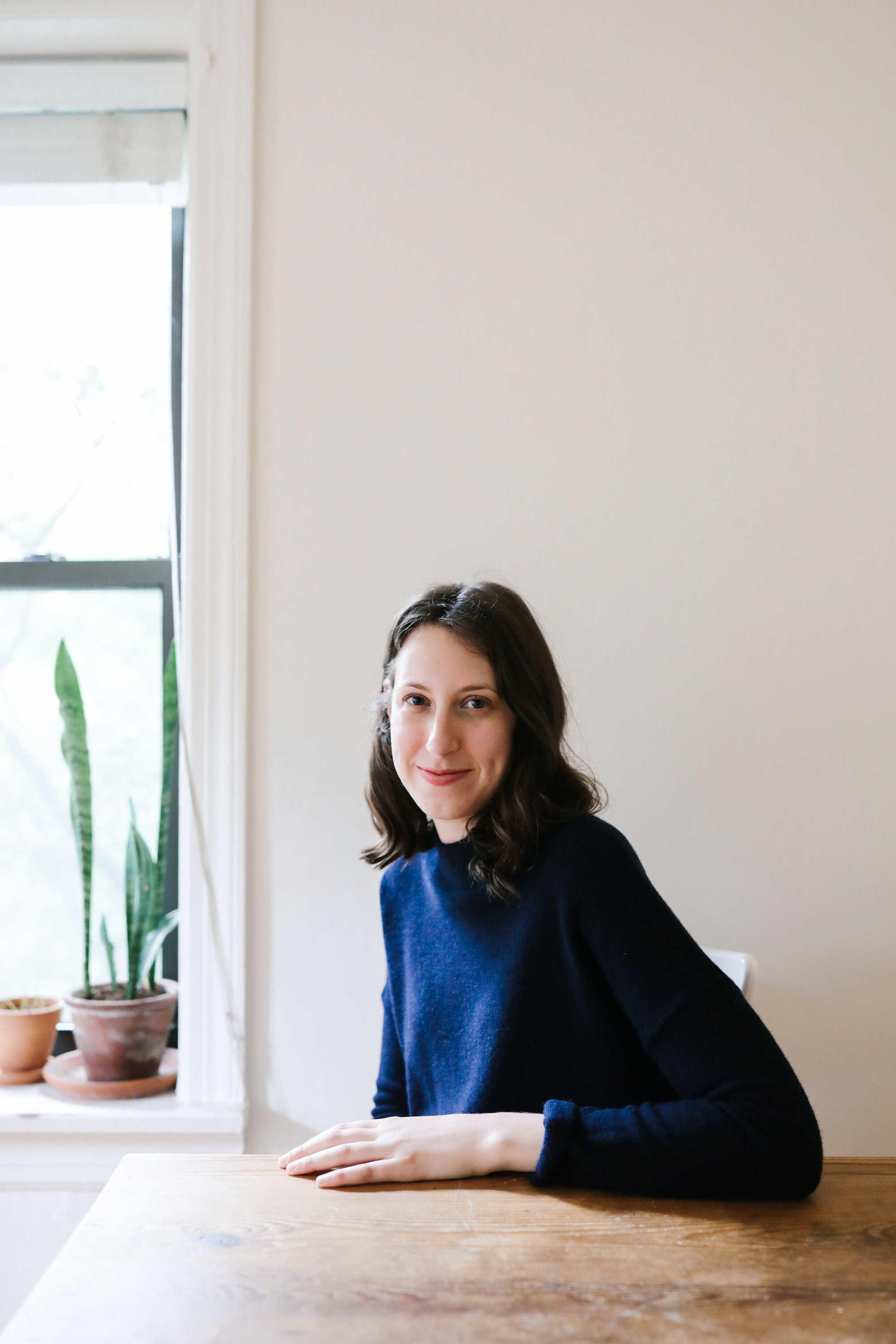
//
To see more of Celia’s work, head to Litterless.
To keep up with Celia’s everyday goings on, follow @litterless on Instagram.
Photos courtesy of Celia Ristow. Photographs of Celia, her plants, and her brushes were taken by Anna Zajac.
The Simple Matters Series is inspired in part by curiosity piqued while writing my book of the same title. I wanted to know what simple matters were for other folks. And why simplicity mattered to them in the first place. My own Simple Matters story came out in January of 2016. It’s still available where most books are sold. (Signed copies are available locally at Stories Bookshop!)

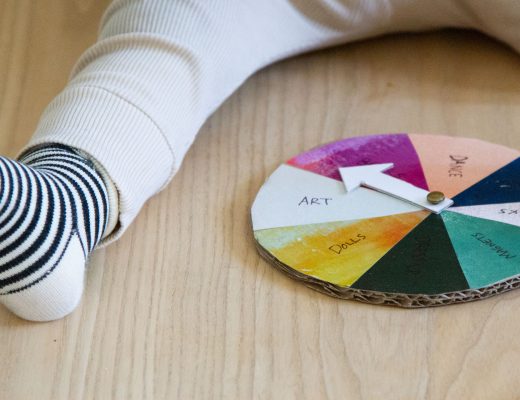
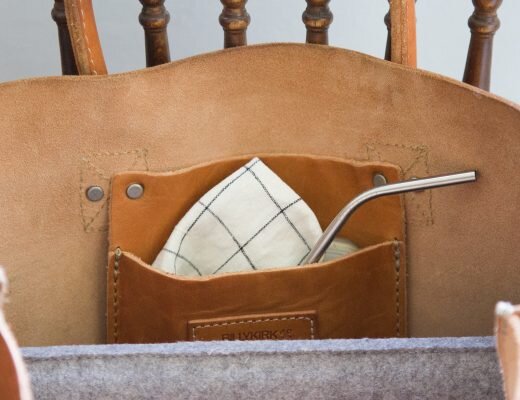
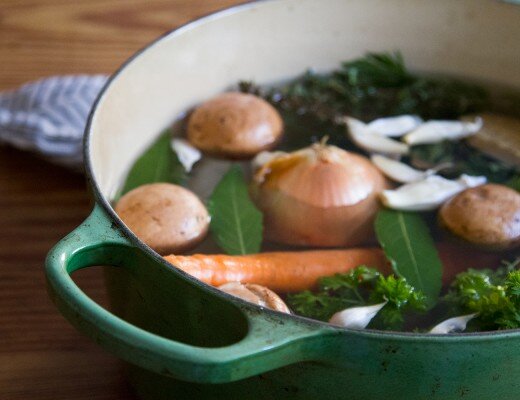
23 Comments
thanks for introducing us to Celia! I’m so irrationally excited that she’s from my city too =P
“I don’t think that the world will be saved by a thousand people who are “perfectly” zero waste, but I do think that millions of sort-of-zero-wasters will make a difference.” Love this thought. And love how by reading this I feel like my low-waste efforts thus far aren’t trivial and more inspired to keep doing better. I also find the community bonds you have formed to be so beautiful and aspirational.
Thank you, Gina. I loved your interview as well. I don’t have a science background so it was fascinating reading all of your thoughts!
I agree framing zero waste that way is so empowering. 2018 has been a good year for me in my zero waste efforts and I’m hoping 2019 will be even greater. It’s nice to think we are all in this together! ❤️
I loved this so much, especially her message that reducing waste is so community-specific. Our city recently stopped recycling all plastics except #1 and #2 items shaped liked bottles – it was alarming to realize how much plastic we were recycling that now has to go in the trash. I definitely find food packaging to be the thing I struggle with the most. With three hungry and growing boys in our house, it is so much more cost effective to buy “in bulk” from a place like Sam’s Club (which has decent organic and healthy options is you know what to look for) but then there is a certain amount of packaging waste you have to contend with too. I try to buy in bulk with my own bags too from a different store but it’s not practical for everything. We do us tons of hand-me-downs for my kids clothes, both among all three of them, but also happily taking hand-me-downs from other families with older kids and passing on hand-me-downs to families with smaller kids. This has saved us an enormous amount of money over the years. I look forward to checking out Celia’s site and learning even more!
Celia is my zero waste hero! I love how she makes zero waste approachable and beautiful. Celia has a great series on her blog called “Nothing New,” which makes zero waste attainable for all. She’s a real inspiration! Thanks for sharing this interview.
her message is exactly what i’ve been trying to portray when i started my site – that being perfect isn’t sustainable/going to solve anything, if we all make an effort and shift how we consume that’s better than making “no trash” at all is. what does matter: community, helping others, and setting yourself up for success with guidelines to live by. lovely post 🙂
wow. wow. wow.
I love love love this story and the topic. We waste a disgusting amount of food, things, resources, energy, clothing etc. And, even with my best efforts, i still have bags of garbage and bags of recycling every month. I donate everything possible and buy second hand often. Alas, still so much waste. The whole effort often feels hopeless that I’m making any change and even worse thoughts buzz around about others who throw away EVERYTHING. agggghhhh!!!!
I often have long lingering and wandering thoughts about opening up a shop for people to donate odd things they no longer need but could be useful to another neighbors. Like a food bank/food shelf idea but for “things”. Or at least getting myself more involved in the Buy Nothing organization. Buy Nothing in my area has days where neighbors can donate and “shop” for free. If you’re not aware of them, check it out.
But, I will keep working in my home and life to buy and have less. And, I am investing in a compost bin as my city hasn’t started one, despite my asking. I have high hopes they will soon as our neighbor, Cambridge, MA has started their successful curbside program. This has inspired me to give a ring over to City Hall right now. Democracy in action, baby!
Thanks for introducing me to Litterless!!
Thank you for the introduction! I’ll be following her blog now, too. Also, thanks to your post which led me to her blog, and her blog which talked about composting, I just signed up for weekly compost pickups! Much better than throwing everything in the garbage.
Katie! This made my day. Thank you! Hope your start to composting goes very smoothly!
Yay! Wonderful spotlight!
Celia, my family makes a very tasty homemade hot sauce. Roast 1 orange or yellow bell pepper, 4 cloves of garlic in the skins, and one hot pepper until very soft. Seed the peppers. Add white vinegar to cover and lots of salt and blend. It keeps for about a month.
Cool interview. Thanks for sharing.
Erin, thank you for spotlighting Celia’s calm and considerate voice; her thoughts on how environmentalist action can create community were wonderful. And I love that it’s her passion for the environment that’s directed her towards a more moderate approach, not a loss of enthusiasm. I admire someone who cares enough to move away from fashionable, over simplified extremes when there’s a better, if less “exciting” way. Will be passing this interview along and reading more of Celia’s stuff!
Thank you for spotlighting Celia and Litterless! Her accessible approach and lovely photos have been a daily inspiration for me for some time. Paired with RTML, it’s my go-to daily reminder about what’s possible. Keep up the great work!
What a refreshing post on Zero-waste. I’ve tried so hard to reduce our family’s waste, but with four young kids who love to snack (so many Larabars!!!), it can be very challenging at times. This was a breath of fresh air. Thank you for sharing and for the encouraging words.
This is a refreshing and relatable perspective, thank you for sharing it. I have to say that I roll my eyes sometimes at the ‘waste in a jar’ people. I’m like – where’s your expired fire alarm? What if you have a hospital visit? One, in particular, travels frequently for work by air…which is one of the worst offenders in terms of personal carbon output. When asked they replied something like, “Well – the airplane will be going whether I’m on it or not.” A mentality which definitely doesn’t fit with the ethos they’re trying to project. (rant over)
Have to add here that Buy Nothing (buynothingproject.org) can be a great way to reduce your waste. It’s a giving/receiving site hosted on Facebook for your community (which could mean anything from your town or to your neighborhood in a city).
It’s a much more targeted than bringing donations to the thrift store (who knows if someone will buy them) – when you offer something that you have that you no longer need, and a neighbor expresses interest, you know that it’s going to be used and kept from the landfill.
In my local group, people give away leftovers (food) all the time…just the other day I missed out on a spare piece of delicious cake from our local bakery 🙂 We also have neighbors who love to cook and often offer fresh bread, hot soup, or whatever it is that they’ve made.
You can also make requests for the things you’re desiring. I’ve done this many times and have nearly always have had my request fulfilled.
I highly encourage folks to see if there’s a group in their area – and if not – to think about starting one!
Gosh, this is just lovely. Erin, in an online world that seems to be mostly say “consume! consume! consume!” your blog is a breath of fresh air. Thank you, today and always. I see what you are trying to do and I appreciate it.
this was a great post. does anybody ever talk about how going vegan would do so much good for the environment? (more than pretty much anything else?)
sounds like you’re talking about it! my family’s not vegan, but we are vegetarian and committed to eating a mostly plant-based diet for this reason!
In Sweden, where I live, there’s I would say there’s a lot of talk about the impact of diet, both vegan and vegetarian eating is often discussed. When I become a vegetarian (and later vegan), there was little discussion, so I can really notice a difference here.
Beautiful! I love this down to earth approach and am very inspired! Thanks for this helpful interview and lovely to discover new voices.
Fantastic view on sustainability. As someone who is trying to improve in this area, I appreciate the stance of “trying our best”. It can be extremely daunting reading about zero-waste & overwhelming. Thank you for your insight on starting local, and encouraging those in the community around us to participate.
Comments are moderated.